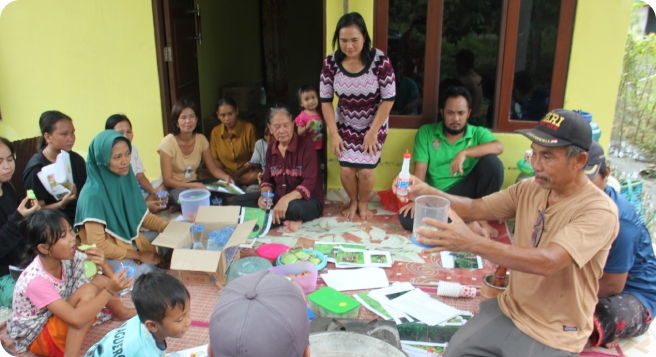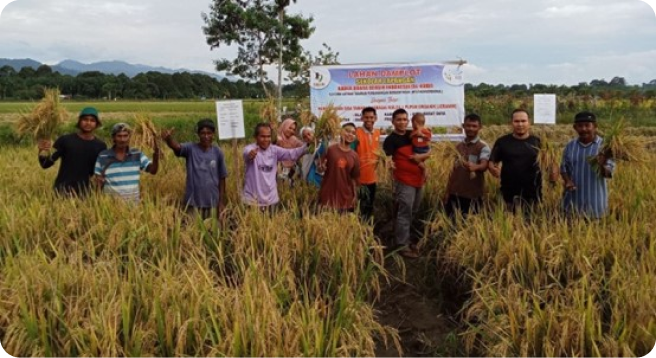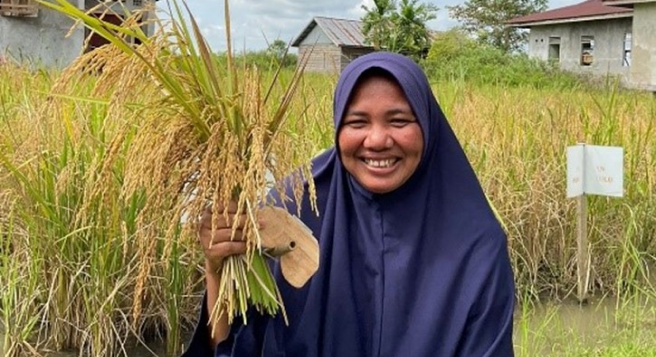My name is Lisefah Refi and I am a 41-year-old farmer. Based in Pulau Jumat Village, Riau Province in Indonesia, my life as a farmer has changed dramatically over the past few years.
Previously, I would burn rice straw and weeds as part of my field clearing routine. At that time, I was under the impression that doing so would help improve soil fertility. However, my yields continued to decline over time. I was also facing increasingly frequent issues with my crops, such as pests and diseases. As a result, I had to spend more on inputs, as I was using increased amounts of fertilisers and pesticides to sustain my crops.
Circumstances changed in December 2022, when I joined the Clean Air Farming Field School. Organised by the FIELD Indonesia Foundation, I had the opportunity to observe side-by-side comparison trials. Together with the Mandiri Woman Farmer Group, we learned the many negative impacts of open agricultural burning and tillage, from depleting soil nutrients to soil compaction.
Within our quarter-hectare study plot, the no-burn method yielded 8 tons per hectare, compared to conventional methods which yielded a much lower 6.8 tons using the conventional method. We also learned that open air burning of crop residue increases pollution and emissions, which is harmful for not only the planet but for our own health too.
After the training, I became convinced and switched to using no-burn regenerative methods on my own land—and saw remarkable results. My rice plants became stronger and more vigorous, while damage from pests was minimised. Further showcasing the positive impact of regenerative methods, my crops thrived despite the fact that neighbouring fields were suffering from yellow disease.
Given the wide-ranging benefits of no-burn methods, I will continue employing this approach and encourage other farmers in my district to adopt it for cleaner air and better yields. Insya Allah, I believe that all of us can work together for a healthier and more sustainable Indonesia.



